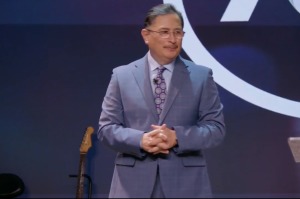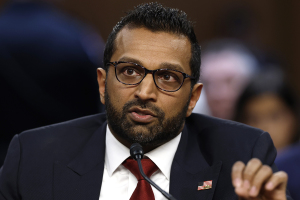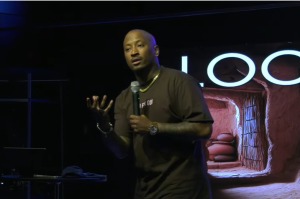Famed Theologian Quits Anglican Church of Canada
J.I. Packer, one of the world's most renowned evangelical theologians, left the Anglican Church of Canada, citing "poisonous liberalism" in the church body.
Packer, 81, who was named one of the 25 most influential evangelicals in the world by Time magazine in 2005, quit the Canadian arm of the global Anglican Communion with 10 other B.C. Anglican clergy last week, he said, according to The Vancouver Sun. They joined the more conservative and orthodox Province of the Southern Cone in South America.
The Oxford-trained theologian said he can no longer serve under Vancouver-area Bishop Michael Ingham, arguing that he "appears heretical." Ingham had sanctioned in 2002 same-sex blessings in the British Columbia diocese of New Westminster, sparking international uproar.
In recent years, 28 parishes have voted to split from the Anglican Church of Canada, citing the denomination's departure from Christian orthodox values and Anglican tradition. They have realigned with overseas Anglican provinces.
St. John's Shaughnessy Anglican Church in Vancouver, which Packer is a long-time member of, left the denomination in February, placing itself under the authority of the Southern Cone province.
John Stackhouse, a professor of theology and culture at Regent College in Vancouver, sees two different bodes forming in Canada with the continual departure of parishes.
"Frankly, we have not seen this sort of thing in Canadian history, and I'm not sure we've seen it in Anglican history," he said, according to The Canadian Press.
"With the significant size of these dissenting groups, and the international support for them ... we may see two different bodies in one geographical territory," he said, noting that Anglican churches traditionally have been determined through geographic, and not ideological, boundaries.
While the controversy has focused on homosexuality, Stackhouse says the issue is about more than sex.
"This is about the fundamental question of how we derive any kind of Christian truth," he said, according to The Canadian Press.
Packer, who has outlined a conservative Christian theology in his 1973 bestseller Knowing God, described the Bible as "absolute" authority on divine truth and that it clearly describes homosexuality as a grave sin, as reported by The Vancouver Sun.
The Rev. Kevin Dixon, priest at St. Mary's Anglican Church in Kerrisdale, meanwhile believes Packer is adopting a "literalistic" reading of the Bible.
"It's important for people to understand that the holy scriptures is a very nuanced document. I think we need to allow people room to come to a new understanding," said Dixon, the local newspaper reported.
"I have not always held the view that same-sex relationships are consistent with the gospel of Jesus Christ, but now I do."
Packer argued that top leaders of the Anglican Church of Canada have changed their interpretation of Christianity while he and other conservative Anglicans have remained committed to traditional Anglicanism.
"I'm simply being an old-fashioned mainstream Anglican," Packer said.
As conservative Anglicans believe the core beliefs of Christianity are being called into question by the Anglican Church of Canada, the small group of parishes that have left may just the first wave, some predict.
"Every diocese in which this (approval of same-sex blessings) has happened – or something like it has happened – churches have split off," said Stackhouse. "This [issue] is very much in play now; this is not the end game at all."
Over the weekend the Anglican Network in Canada, a splinter group comprised of parishes now under the authority of the Province of the Southern Cone in South America, held a conference where they welcomed Archbishop Gregory Venables, leader of that southern province. His arrival at the conference stirred controversy as the Anglican Church of Canada told him not to intervene in the country's affairs. He refused, however, saying the conservative group of Anglicans wanted him there.



























